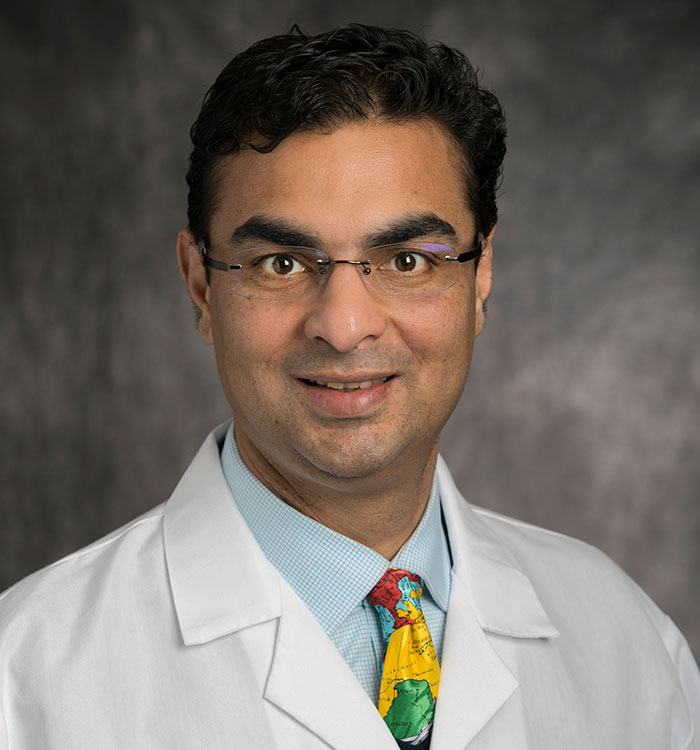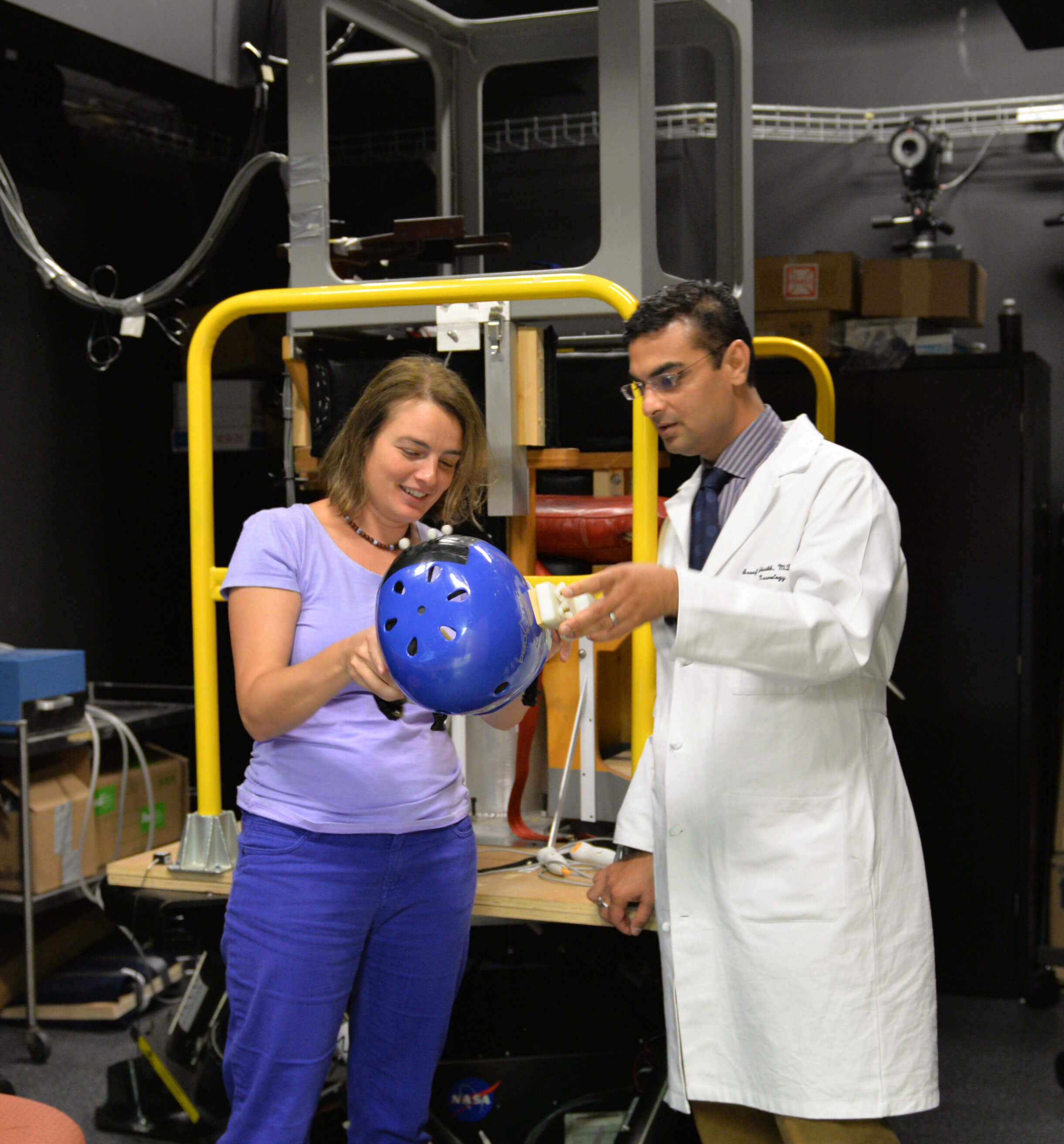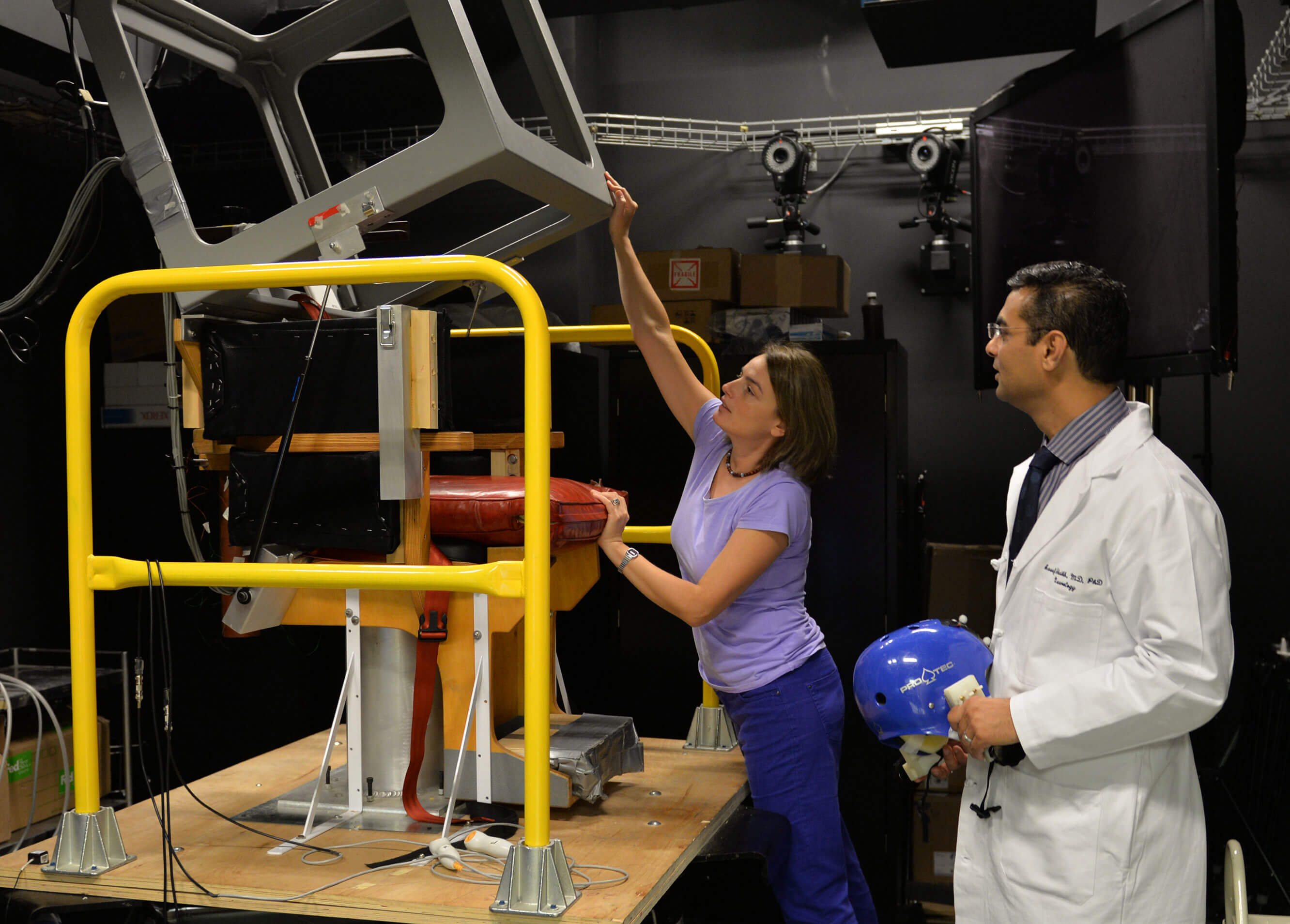Top Honor for Parkinson's Researcher Aasef Shaikh, MD, PhD
February 10, 2020
Receives The Penni and Stephen Weinberg Chair in Brain Health at University Hospitals
Innovations of Neurology & Neurosurgery | Winter 2020
Since its inception in 2016, The Penni and Stephen Weinberg Chair in Brain Health has supported the work of physician-scientists dedicated to finding new and more effective ways to treat and improve the quality of life for people suffering from neurodegenerative disorders and other neurological conditions.
 Aasef Shaikh, MD, PhD
Aasef Shaikh, MD, PhDAasef Shaikh, MD, PhD, Medical Director of University Hospitals Neurological Institute at University Hospitals Samaritan Medical Center, one of the leaders of the deep brain stimulation (DBS) program within University Hospitals Parkinson's & Movement Disorders Center, and Principal Investigator at Daroff-Dell’Osso Ocular Motility Laboratory, is the latest to receive this honor. As part of the DBS program, Dr. Shaikh focuses his research on balance issues related to Parkinson’s disease.
“This is a huge honor, especially early in my career,” Dr. Shaikh says. “The chair designation will allow me to do research more confidently.”
The designation will also allow Dr. Shaikh and his colleagues to enhance the mission of the Cleveland Brain Health Initiative, a consortium hosted at Case Western Reserve University School of Medicine.
“We’re putting together several interdisciplinary projects, which will result, we hope, in NIH [National Institutes of Health] as well as nonfederal funding to help create the UH Parkinson’s Research Center for Excellence,” Dr. Shaikh says. “To do that, we need pilot programs. This support will help us move forward.”
INSIDE THE LAB


Dr. Shaikh focuses much of his research on how and why people fall. People with Parkinson’s disease have impaired balance and spatial navigation, which leads to falls. These falls can have far-reaching, devastating effects: fractures, lengthy rehabilitation, fear of falling, reduced activity levels, even death.
Could DBS improve spatial navigation and decrease fall risk? Dr. Shaikh intends to find out.
One of Dr. Shaikh’s mentors during his training at University Hospitals, John Leigh, MD, modified a motion simulator designed for the aerospace industry to accommodate patients with parkinsonism and other neurological disorders. “He basically mounted a platform with a chair on top,” Dr. Shaikh says. “Patients sit in the chair, and our computer-controlled algorithms precisely move the platform in various directions. Patients tell us which way they think they are moving. We analyze the data and then do the same experiment with different DBS settings to assess again how stimulation modulated perceived motion. We then model in the computer which parts of the brain DBS modulates.”
BUILDING ON PAST EXPERIENCE
Dr. Shaikh’s research is the culmination of 20 years of study related to the inner ear, balance and movement disorders. From medical school education in India and Doctor of Philosophy thesis work at Wayne State University in Detroit, Michigan, to neurotology research at Washington University in St. Louis, Missouri, Dr. Shaikh always had an interest in the brain-body-balance connection.
Another mentor of Dr. Shaikh’s encouraged him to pursue a fellowship at Johns Hopkins University in Baltimore, Maryland, to help narrow his focus. There, he worked alongside renowned neurologist David Zee, MD, director of the Vestibular/Eye Movement Laboratory and an expert in balance and eye disorders. Dr. Shaikh then shifted his attention to balance problems in patients suffering from movement disorders.
An internship and residency at University Hospitals Cleveland Medical Center preceded additional training at Emory University in Atlanta, Georgia, where he dove into the science behind DBS. His experience and strong recommendations led to one-on-one time with Mahlon DeLong, MD, a pioneer in Parkinson’s disease research who discovered the brain-nerve connection behind DBS.
“Dr. DeLong generously opened a special clinic that allowed me to spend a lot of one-on-one time with him learning neuromodulation,” Dr. Shaikh says. “This encouraged me to discover novel applications of DBS.”
Most professionals have only one mentor during their career. Dr. Shaikh says he has been blessed to have several. When Dr. Leigh needed someone to run his research program, he called his protégé, which allowed Dr. Shaikh to return to Cleveland. “The senior leadership at UH Neurological Institute trained me 10 years ago,” Dr. Shaikh says. “They’re like my academic parents. To come back to UH was like coming back home.”
Dr. Shaikh has published more than 100 peer-reviewed publications, lectured internationally and received numerous awards for his work, including the American Academy of Neurology Alliance Founders Award, the Grass Foundation - American Neurological Association Award in Neuroscience, the American Academy of Neurology Career Development Award, and the Dr. George C. Cotzias Memorial Fellowship from the American Parkinson Disease Association. Yet he talks as much about his mentors as his research. And he talks about both of these things with an infectious passion and enthusiasm.
As Weinberg Chair, Dr. Shaikh will be able to continue his research alongside today’s graduate students, post-doctoral fellows and research engineers. “I try to put myself in my mentors’ shoes: What would they have done if I was the student?” he says. “I give my students liberty to think, to come up with their way of doing, not my way. When we integrate our ways of doing, and we come with great ideas, everyone feels important and respected.”
To learn more about UH Neurological Institute’s DBS and the Parkinson's & Movement Disorders program, call 216-553-1778.


